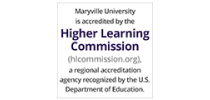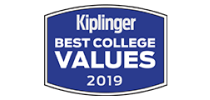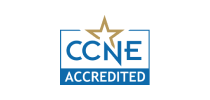

Online Family Nurse Practitioner Programs
12% HIGHER THAN AANP 2022 AVERAGE
Degrees and Certificates
At Maryville University, we take a holistic approach to emphasize the expert care and career importance of family nurse practitioners. With the United States facing a physician shortage, millions of Americans have already turned to nurse practitioners for their family care, not as a second choice — but as a premier solution. Our advanced family practitioner programs help experienced RNs excel in primary care settings and manage health needs for patients of all ages.
“I am pleased with my education through this program and have had three of my colleagues enroll in the online MSN-FNP course because of my glowing reports!”
— Allison E. Martin, Maryville Grad
Online Family Nurse Practitioner Programs
Important dates for 2026
Four Online FNP Programs
Why become an FNP?
What is the job outlook for FNPs?
- Nurse practitioner ranked No. 1 on U.S News & World Report’s “2023 Best Jobs That Help People” list and also No. 1 on its “2023 Best Health Care Jobs.”
- According to the U.S. Bureau of Labor Statistics, job openings for NPs are expected to increase 45% through 2032.
- According to the U.S. Bureau of Labor Statistics, the median pay for nurse practitioners is $94,460 annually.
- It is anticipated that by 2036, the nation will be short at least 86,000 family medicine doctors. Nurse practitioners provide a viable, and vital, solution to this impending crisis.
- The American Association of Nurse Practitioners estimates more than 85,000 nurse practitioners work in the U.S.
Why choose Maryville?
We’re a private, four-year institution ranked as one of America’s Best Colleges by both U.S. News & World Report and Forbes. We’re also proud to have been named to the Military Friendly Schools List for the 6th consecutive year. When you choose us, you receive a highly flexible and highly regarded education with the added convenience of being delivered 100% online. Here are a few more reasons why we offer you the best path:
- Streamline your time and talent to earn a post-master’s certificate.
- Graduate from a program accredited by the Commission on Collegiate Nursing Education (CCNE).
- Enjoy a flexible and convenient 24/7 online learning model.
- Explore important topics that will help pave the way to a better future for yourself and the nurses who follow in your footsteps.
- Take the opportunity to conduct research via clinical inquiry courses that will challenge your assumptions.
- Learn from an expert faculty of nursing leaders who openly share their experiences and insights regarding public health and the nursing profession.
Earn an education with a strong ROI
We’re proud to be recognized among the leaders in social mobility in our region*:
- No. 1 in social mobility among private colleges and universities in the St. Louis area
- No. 1 in lowest average debt among regional private peers
- Top 3 in St. Louis for graduation rates and early-career earnings
These rankings serve as indicators of strong ROI for our graduates — meaning your Maryville education can help you start faster and go further.
Founded in 1872 – Top Ranked for Today





Online FNP Curriculum
One rewarding career specialty.
Online MSN FNP Concentration
MSN | Core Courses
This course explores focused and comprehensive health assessments in a variety of settings and patients across the lifespan. This includes development of health promotion strategies and prioritization of care.
Prerequisite: Online - NURS 611, NURS 615
Corequisite: On Ground - NURS 615
This course focuses on the pharmacological foundation for safely prescribing medical regimens of illnesses for individuals across the lifespan. Also included are illness prevention, non-pharmacological and legal implications for prescriptive authority for the nurse practitioner.
Note: Selection of appropriate therapies, patient education and evaluation parameters are stressed.
For the FNP concentrations you will need:
This course covers the care of adults experiencing acute, chronic and complex health problems of select body systems in this first of two sequential courses. Current research based interventions are analyzed. Individual, family, and group counseling/education for patients and families are incorporated. Included is primary, secondary and tertiary disease prevention and management of complex symptomatology.
Prerequisite: NURS 611, NURS 612, and NURS 615
Corequisite: NURS 621 or NURS 621C
This course will cover the theoretical, clinical and role components of care by an advanced practice nurse and are integrated in a supervised clinical practicum.
Prerequisite: NURS 611, NURS 612, and NURS 615
Corequisite: NURS 620
This course covers the care of adults experiencing acute, chronic and complex health problems of select body systems in this second of two sequential courses. Current research based interventions are analyzed. Individual, family, and group counseling/education for patients and families are incorporated. Included is primary, secondary and tertiary disease prevention and management of complex symptomatology.
Prerequisite: NURS 620 and NURS 621 or NURS 621C
Corequisite: NURS 624 or NURS 624C
This course will cover the theoretical, clinical and role components of care by an advanced practice provider and are integrated in a supervised clinical practicum. Opportunity is provided for the assessment, management, and evaluation of adults with chronic and acute health problems in a primary care setting.
Prerequisite: NURS 620 and NURS 621
Corequisite: NURS 623
This course prepares Family Nurse Practitioner students to develop expertise and assume responsibility for health promotion, maintenance, and management of chronic and acute illness of children and women’s health. Emphasis is placed on the child within the framework of the family.
Prerequisite: NURS 623 and NURS 624 or NURS 624C
Corequisite: NURS 630 or NURS 630C
This course provides the student with an opportunity to assume responsibility for the primary health care services of individuals and families under clinical supervision. The student is expected to assume increasing responsibility for planning and implementing therapeutic processes and for documenting and evaluating outcomes of care. The role of the FNP in health care promotion and management and collaboration with health professionals.
Prerequisite: NURS 623 and NURS 624
Corequisite: NURS 629
Online BSN to DNP FNP Concentration
BSN to DNP | Core Courses
This course explores focused and comprehensive health assessments in a variety of settings and patients across the lifespan. This includes development of health promotion strategies and prioritization of care.
Prerequisite: Online - NURS 611, NURS 615
Corequisite: On Ground - NURS 615
This course focuses on the pharmacological foundation for safely prescribing medical regimens of illnesses for individuals across the lifespan. Also included are illness prevention, non-pharmacological and legal implications for prescriptive authority for the nurse practitioner.
Note: Selection of appropriate therapies, patient education and evaluation parameters are stressed.
This course is designed to introduce students to the purpose, content, and methods of epidemiology and biostatistics. Students will learn to evaluate and use output from statistical computing software.
Prerequisite: NURS 710
This course is designed to explore the phenomenon of interest related to the DNP scholarly project. Students will systematically develop a project protocol that is supported by the literature and submit it for department approval.
Course objectives:
- Develop a clinical question that guides the scholarly project.
- Read critically from professional nursing literature and other related disciplines to interpret, analyze and apply current research to improve practice.
- Apply a systematic approach to address clinical problems within healthcare organizations, including outcome measures and a sustainability plan to create meaningful changes in clinical outcomes.
- Develop a protocol and submit it to the DNP council for project approval.
- Develop the first chapter of the scholarly project that includes needed sections based on the selected DNP project format.
This course is designed to emphasize an objective approach to the integration and synthesis of knowledge. Manuscript preparation and practical use of evidence are incorporated to prepare students for the design of research proposals.
Prerequisite: NURS 700 and NURS 701
This course will allow the students to design an evidence-based project that will guide clinical practice. The feasibility of conducting this initiative will be explored. Potential funding sources and budget issues will be examined. Students will apply the elements of protection of human subjects and complete the Maryville IRB.
Prerequisite: NURS 700, NURS 701, NURS 702, and NURS 703
This course is designed to expand the students knowledge of clinical project data collection and analysis of data. Students will apply integrated research concepts pertaining to the clinical project. Utilization of various methods of data analysis and data management systems will be explored. Complete project data is needed prior to the start of this course.
Prerequisite: NURS 705 and NUS 705L
This course is designed to expand the students understanding of methods of dissemination in translational research. Variables that impact the analysis of data related to the scholarly project will be examined. Implications for patients, clinical practice and the healthcare systems will be explored and findings disseminated.
Prerequisite: NURS 706
For the FNP concentrations you will need:
This course covers the care of adults experiencing acute, chronic and complex health problems of select body systems in this first of two sequential courses. Current research based interventions are analyzed. Individual, family, and group counseling/education for patients and families are incorporated. Included is primary, secondary and tertiary disease prevention and management of complex symptomatology.
Prerequisite: NURS 611, NURS 612, and NURS 615
Corequisite: NURS 621 or NURS 621C
This course will cover the theoretical, clinical and role components of care by an advanced practice nurse and are integrated in a supervised clinical practicum.
Prerequisite: NURS 611, NURS 612, and NURS 615
Corequisite: NURS 620
This course covers the care of adults experiencing acute, chronic and complex health problems of select body systems in this second of two sequential courses. Current research based interventions are analyzed. Individual, family, and group counseling/education for patients and families are incorporated. Included is primary, secondary and tertiary disease prevention and management of complex symptomatology.
Prerequisite: NURS 620 and NURS 621 or NURS 621C
Corequisite: NURS 624 or NURS 624C
This course will cover the theoretical, clinical and role components of care by an advanced practice provider and are integrated in a supervised clinical practicum. Opportunity is provided for the assessment, management, and evaluation of adults with chronic and acute health problems in a primary care setting.
Prerequisite: NURS 620 and NURS 621
Corequisite: NURS 623
This course prepares Family Nurse Practitioner students to develop expertise and assume responsibility for health promotion, maintenance, and management of chronic and acute illness of children and women’s health. Emphasis is placed on the child within the framework of the family.
Prerequisite: NURS 623 and NURS 624 or NURS 624C
Corequisite: NURS 630 or NURS 630C
This course provides the student with an opportunity to assume responsibility for the primary health care services of individuals and families under clinical supervision. The student is expected to assume increasing responsibility for planning and implementing therapeutic processes and for documenting and evaluating outcomes of care. The role of the FNP in health care promotion and management and collaboration with health professionals.
Prerequisite: NURS 623 and NURS 624
Corequisite: NURS 629
Online Post-Master's Certificate FNP Concentration
Graduate Nursing Core Courses
Nurse Practitioner Core Courses
This course explores focused and comprehensive health assessments in a variety of settings and patients across the lifespan. This includes development of health promotion strategies and prioritization of care.
Prerequisite: Online - NURS 611, NURS 615
Corequisite: On Ground - NURS 615
This course focuses on the pharmacological foundation for safely prescribing medical regimens of illnesses for individuals across the lifespan. Also included are illness prevention, non-pharmacological and legal implications for prescriptive authority for the nurse practitioner.
Note: Selection of appropriate therapies, patient education and evaluation parameters are stressed.
For the FNP certificate you will need:
This course covers the care of adults experiencing acute, chronic and complex health problems of select body systems in this first of two sequential courses. Current research based interventions are analyzed. Individual, family, and group counseling/education for patients and families are incorporated. Included is primary, secondary and tertiary disease prevention and management of complex symptomatology.
Prerequisite: NURS 611, NURS 612, and NURS 615
Corequisite: NURS 621 or NURS 621C
This course will cover the theoretical, clinical and role components of care by an advanced practice nurse and are integrated in a supervised clinical practicum.
Prerequisite: NURS 611, NURS 612, and NURS 615
Corequisite: NURS 620
This course covers the care of adults experiencing acute, chronic and complex health problems of select body systems in this second of two sequential courses. Current research based interventions are analyzed. Individual, family, and group counseling/education for patients and families are incorporated. Included is primary, secondary and tertiary disease prevention and management of complex symptomatology.
Prerequisite: NURS 620 and NURS 621 or NURS 621C
Corequisite: NURS 624 or NURS 624C
This course will cover the theoretical, clinical and role components of care by an advanced practice provider and are integrated in a supervised clinical practicum. Opportunity is provided for the assessment, management, and evaluation of adults with chronic and acute health problems in a primary care setting.
Prerequisite: NURS 620 and NURS 621
Corequisite: NURS 623
This course prepares Family Nurse Practitioner students to develop expertise and assume responsibility for health promotion, maintenance, and management of chronic and acute illness of children and women’s health. Emphasis is placed on the child within the framework of the family.
Prerequisite: NURS 623 and NURS 624 or NURS 624C
Corequisite: NURS 630 or NURS 630C
This course provides the student with an opportunity to assume responsibility for the primary health care services of individuals and families under clinical supervision. The student is expected to assume increasing responsibility for planning and implementing therapeutic processes and for documenting and evaluating outcomes of care. The role of the FNP in health care promotion and management and collaboration with health professionals.
Prerequisite: NURS 623 and NURS 624
Corequisite: NURS 629
Online DNP-NP Program FNP Concentration
Doctor of Nursing Practice Foundation Courses (15 credit hours)
This course is designed to introduce students to the purpose, content, and methods of epidemiology and biostatistics. Students will learn to evaluate and use output from statistical computing software.
Prerequisite: NURS 710
This course is designed to explore the phenomenon of interest related to the DNP scholarly project. Students will systematically develop a project protocol that is supported by the literature and submit it for department approval.
Course objectives:
- Develop a clinical question that guides the scholarly project.
- Read critically from professional nursing literature and other related disciplines to interpret, analyze and apply current research to improve practice.
- Apply a systematic approach to address clinical problems within healthcare organizations, including outcome measures and a sustainability plan to create meaningful changes in clinical outcomes.
- Develop a protocol and submit it to the DNP council for project approval.
- Develop the first chapter of the scholarly project that includes needed sections based on the selected DNP project format.
This course is designed to emphasize an objective approach to the integration and synthesis of knowledge. Manuscript preparation and practical use of evidence are incorporated to prepare students for the design of research proposals.
Prerequisite: NURS 700 and NURS 701
This course is designed to provide an understanding of the measurement of phenomena as it relates to the research process. Procedures for selecting, applying, and interpreting the correct statistical application to a research problem will be presented with students processing the results.
Prerequisite: NURS 700
Doctor of Nursing Practice Capstone Courses (18 credit hours)
This course will allow the students to design an evidence-based project that will guide clinical practice. The feasibility of conducting this initiative will be explored. Potential funding sources and budget issues will be examined. Students will apply the elements of protection of human subjects and complete the Maryville IRB.
Prerequisite: NURS 700, NURS 701, NURS 702, and NURS 703
This course is designed to expand the students knowledge of clinical project data collection and analysis of data. Students will apply integrated research concepts pertaining to the clinical project. Utilization of various methods of data analysis and data management systems will be explored. Complete project data is needed prior to the start of this course.
Prerequisite: NURS 705 and NUS 705L
This course is designed to expand the students understanding of methods of dissemination in translational research. Variables that impact the analysis of data related to the scholarly project will be examined. Implications for patients, clinical practice and the healthcare systems will be explored and findings disseminated.
Prerequisite: NURS 706
Graduate Nursing Core Courses (6 credit hours)
Nurse Practitioner Core Courses (11 credit hours)
This course explores focused and comprehensive health assessments in a variety of settings and patients across the lifespan. This includes development of health promotion strategies and prioritization of care.
Prerequisite: Online - NURS 611, NURS 615
Corequisite: On Ground - NURS 615
This course focuses on the pharmacological foundation for safely prescribing medical regimens of illnesses for individuals across the lifespan. Also included are illness prevention, non-pharmacological and legal implications for prescriptive authority for the nurse practitioner.
Note: Selection of appropriate therapies, patient education and evaluation parameters are stressed.
Family Nurse Practitioner (18 credit hours)
This course covers the care of adults experiencing acute, chronic and complex health problems of select body systems in this first of two sequential courses. Current research based interventions are analyzed. Individual, family, and group counseling/education for patients and families are incorporated. Included is primary, secondary and tertiary disease prevention and management of complex symptomatology.
Prerequisite: NURS 611, NURS 612, and NURS 615
Corequisite: NURS 621 or NURS 621C
This course will cover the theoretical, clinical and role components of care by an advanced practice nurse and are integrated in a supervised clinical practicum.
Prerequisite: NURS 611, NURS 612, and NURS 615
Corequisite: NURS 620
This course covers the care of adults experiencing acute, chronic and complex health problems of select body systems in this second of two sequential courses. Current research based interventions are analyzed. Individual, family, and group counseling/education for patients and families are incorporated. Included is primary, secondary and tertiary disease prevention and management of complex symptomatology.
Prerequisite: NURS 620 and NURS 621 or NURS 621C
Corequisite: NURS 624 or NURS 624C
This course will cover the theoretical, clinical and role components of care by an advanced practice provider and are integrated in a supervised clinical practicum. Opportunity is provided for the assessment, management, and evaluation of adults with chronic and acute health problems in a primary care setting.
Prerequisite: NURS 620 and NURS 621
Corequisite: NURS 623
This course prepares Family Nurse Practitioner students to develop expertise and assume responsibility for health promotion, maintenance, and management of chronic and acute illness of children and women’s health. Emphasis is placed on the child within the framework of the family.
Prerequisite: NURS 623 and NURS 624 or NURS 624C
Corequisite: NURS 630 or NURS 630C
This course provides the student with an opportunity to assume responsibility for the primary health care services of individuals and families under clinical supervision. The student is expected to assume increasing responsibility for planning and implementing therapeutic processes and for documenting and evaluating outcomes of care. The role of the FNP in health care promotion and management and collaboration with health professionals.
Prerequisite: NURS 623 and NURS 624
Corequisite: NURS 629
Career Paths and Guides

Frequently Asked Questions
FNP-BC and FNP-C are both credentials for family nurse practitioners, but they are awarded by different certification bodies.
FNP-BC stands for Family Nurse Practitioner-Board Certified. This credential is awarded by the American Nurses Credentialing Center (ANCC).
FNP-C stands for Family Nurse Practitioner-Certified. This credential is awarded by the American Academy of Nurse Practitioners Certification Board (AANPCB).
Both certifications validate a nurse's ability to practice at an advanced level and require passing a comprehensive exam. The choice between the two often depends on individual preference, state requirements, or potential employer preferences.
Family nurse practitioners (FNPs) can work in a variety of healthcare settings, including:
- Private practices: Many FNPs work in private medical practices alongside doctors or other nurse practitioners.
- Hospitals: They can work in various departments within a hospital, such as emergency, pediatrics, or geriatrics.
- Urgent care centers: FNPs often work in urgent care centers where they provide immediate care for non-life-threatening conditions.
- Community health clinics: These clinics often serve underprivileged populations, and FNPs can play a crucial role in providing care.
- Schools: Some FNPs work in school settings, providing care to students and staff.
- Nursing homes: FNPs can provide routine and emergency care to elderly patients in nursing homes.
- Home health care services: They may also visit patients in their homes to provide care.
- Corporate health centers: Some large companies have health centers on-site for employees, and FNPs can work there.
- Telemedicine: With the rise of digital health services, many FNPs now also offer virtual consultations.
- Research facilities: FNPs with an interest in research might work in clinical research facilities.

